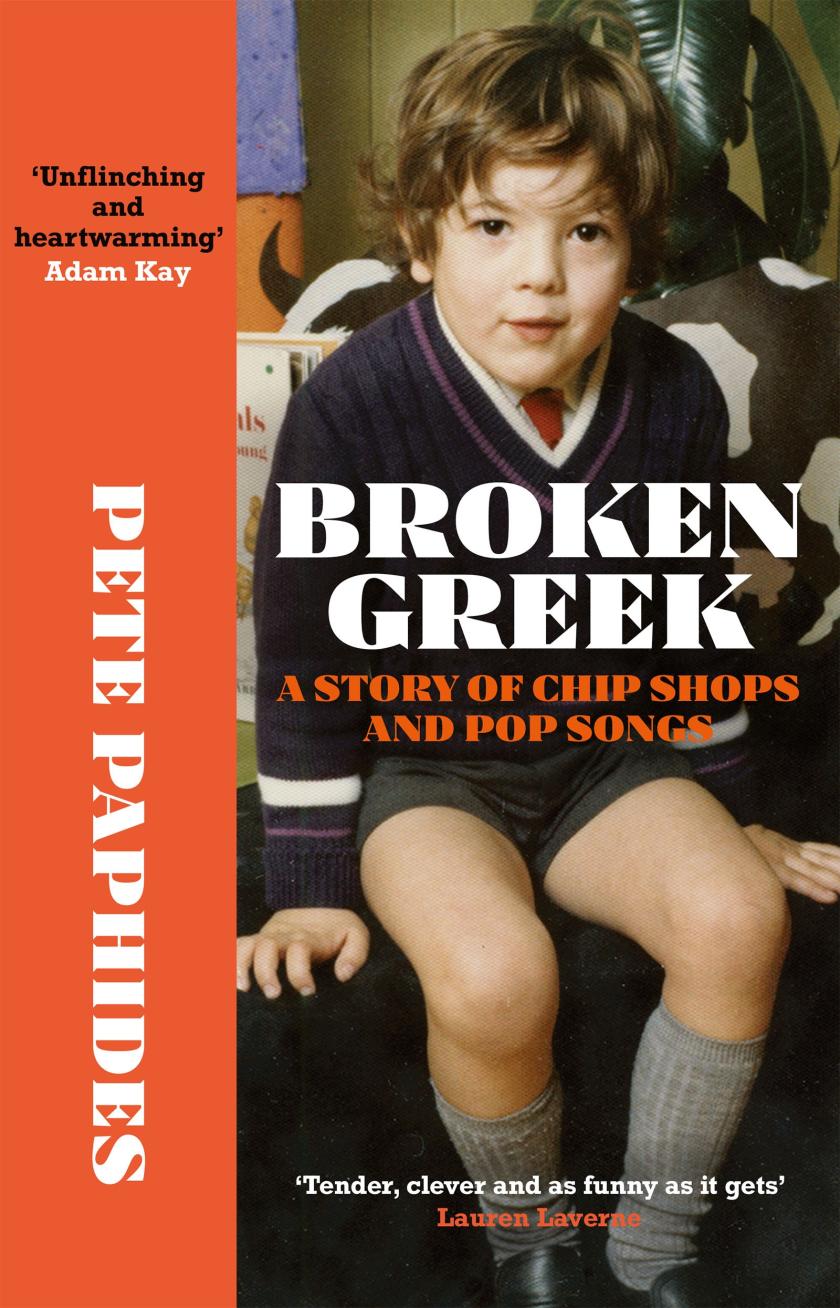Think of the phrase “music memoir”, and you might conjure images of wild nights and heavy mornings. You’re unlikely to think of suburban West Bromwich and tributes to Mike Batt’s Wombles back catalogue. But then, Pete Paphides’s story is comprised of unlikelihoods. What were the chances of one of the country’s leading music critics being the mute son of Greek Cypriot chip shop owners?
Broken Greek tracks Paphides’s childhood from four to thirteen. In his early days, he was selectively mute to everyone outside of his family for reasons not quite clear to anyone, including himself. It was in these silent formative years he first developed an interest in those stars on Top of the Pops. Not so much for the cool factor, as demonstrated by favouriting acts such as Brotherhood of Man and The Barron Knights. Instead, so convinced was he that his parents would abandon him from sheer embarrassment, he was scouting out potential guardians.
You might expect a music critic’s book to be fitted with a heavy anorak, filled with music trivia and boasts of early discoveries, but Paphides has no interest in building his own mystique. His memoir is wholly intimate and tender, able to capture the confusion of older children, the guilt of parents arguing, and the bliss of never-ending holidays. In fact, music plays very little part in the first half of Broken Greek. Instead it eases into the book, slowly taking over all other interests like childhood obsessions do.
As young Pete grows, he realises that time doesn’t offer answers, but exposes you to more you can’t understand. His parents move from chip shop to chip shop, he graduates to high school, and older brother Aki becomes too cool to share a bedroom, but nothing gets any easier. Even music becomes more complicated; why does no-one like his beloved Racey, but everyone likes The Stranglers with their terrifying keyboardist? Through gentle persuasion, Pete does start talking to people again, but it doesn’t mean he knows what to say.
Paphides’s prose is poetic yet crystal clear, creating a form of synaesthesia to the reader. You can smell the chip shop grease and hear the arcade machines, nostalgic for a time you were never present for. In one perfectly formed metaphor, he describes a new obsession like being a new tattoo: “it will stay with you forever, but for this brief period, it glistens and it hurts and you want to show it to everyone.”
When the book does turn to music, it gifts you the chance to hear old tunes with new ears. Paphides doesn’t care much for music theory. Instead he gets lost in the worlds conjured by lyrics and emotions in songs, recreating them vividly for the reader. Whether it’s ABBA or Leo Sayer, Paphides treats each track with respect and awe (apart from poor Toyah, a feigned interest to impress a girl at school). Thanks to his following career, Paphides has since interviewed many acts and can confirm/deny whether his childhood assumptions were correct.
Broken Greek is like the very best pop music. Something so easily consumed belies the complexity behind it. If it was this easy to write so clearly, so engagingly, so honestly, everyone would do it. This is not a memoir for musos; it’s a memoir for everyone. A damn near perfect book.















Add comment